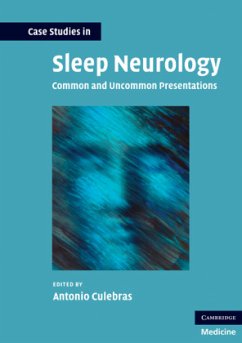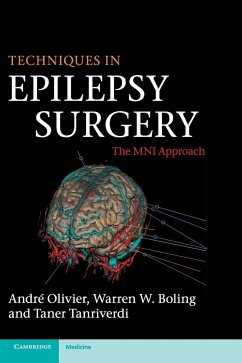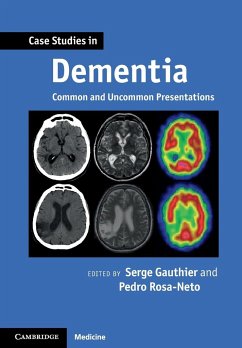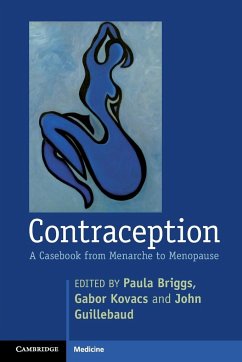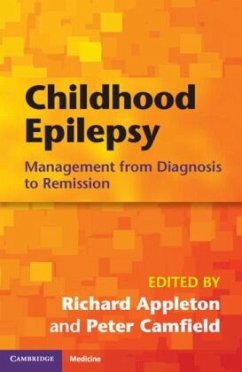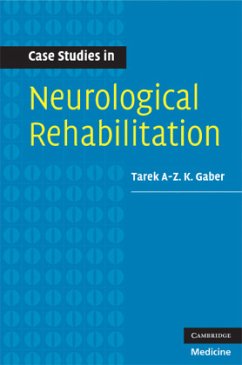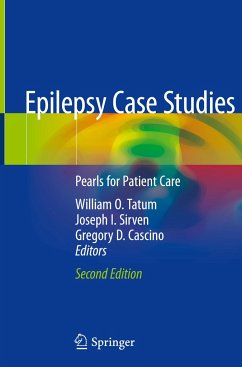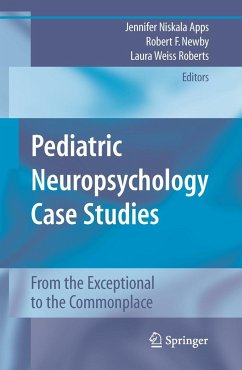
Case Studies in Epilepsy
Common and Uncommon Presentations
Herausgegeben von Stefan, Hermann; Ben-Menachem, Elinor; Chauvel, Patrick; Guerrini, Renzo
Versandkostenfrei!
Versandfertig in 1-2 Wochen
82,99 €
inkl. MwSt.
Weitere Ausgaben:

PAYBACK Punkte
41 °P sammeln!
Clinical case studies have long been recognized as a useful adjunct to problem-based learning and continuing professional development. They emphasize the need for clinical reasoning, integrative thinking, problem-solving, communication, teamwork and self-directed learning - all desirable generic skills for health care professionals. Epilepsy is amongst the most frequently encountered of neurological disorders. There are important emerging clinical management issues (e.g., first seizure, therapy-resistant seizures, ICU, pregnancy) but also differential diagnosis of non-epileptic seizures (synco...
Clinical case studies have long been recognized as a useful adjunct to problem-based learning and continuing professional development. They emphasize the need for clinical reasoning, integrative thinking, problem-solving, communication, teamwork and self-directed learning - all desirable generic skills for health care professionals. Epilepsy is amongst the most frequently encountered of neurological disorders. There are important emerging clinical management issues (e.g., first seizure, therapy-resistant seizures, ICU, pregnancy) but also differential diagnosis of non-epileptic seizures (syncopy, pseudo-seizure, paroxysmal dystonic syndromes, sleep disorders, psychosis, inborn errors of metabolism, etc.). This selection of epilepsy case studies will inform and challenge clinicians at all stages in their careers. Including both common and uncommon cases, Case Studies in Epilepsy reinforces the diagnostic skills and treatment decision-making processes necessary to treat epilepsy and other seizures confidently. Written by leading experts, the cases and discussions work through differential diagnoses, treatments and social consequences in pediatric and adult patients.





